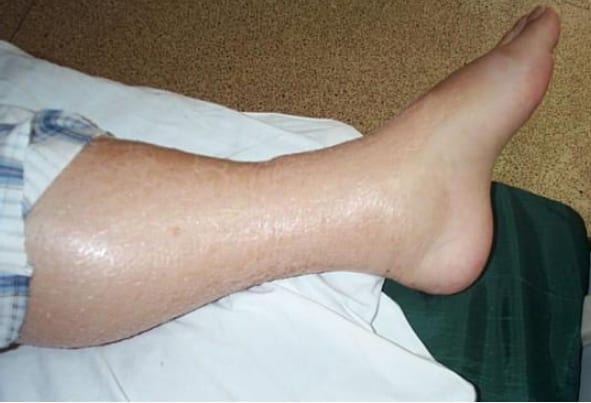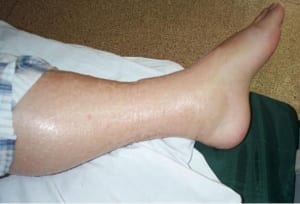88 year old male has a history of osteoarthritis. He has tried self treatment with acetaminophen 325 mg twice daily with no benefit. Upon a recent evaluation with his primary provider, he was prescribed Naproxen 500 mg two times daily.
His current medication list includes:
- Lasix 20 mg daily
- Enalapril 10 mg daily
- Amlodipine 2.5 mg daily
- Metoprolol 12.5 mg twice daily
- Aspirin 325 mg daily
- Sulcralfate 1 gm four times daily
- Senna S 2 tablets daily
Within a few weeks following the Rx of Naproxen 500 mg twice daily, our patient begins to experience worsening shortness of breath, an increase in swelling in his ankles, and his weight has increased 6 pounds. He is diagnosed with a CHF exacerbation. Lasix was increased from 20 to 40 mg daily to help manage the situation. The NSAID likely contributed to the exacerbation.
Playing hindsight, this is a case where you would strongly try to avoid NSAIDs. It is always critical to assess if patients have had an adequate trial of a medication. Acetaminophen 325 mg twice daily for osteoarthritis is not an adequate trial in my opinion before declaring treatment failure. Not only can the NSAID exacerbate CHF, but this gentleman is also on sulcralfate which is usually used to treat GI symptoms like GERD or dyspepsia, both of which could be exacerbated by NSAIDs.
Looking for more clinical pharmacy education? Get a FREE 6 page PDF of 30 classic medication mistakes that I see in my practice as a clinical pharmacist!




I’m curious, is it possible that the edema was caused by the Amlodipine?
Always a consideration…timing is important – the joy of figuring out polypharmacy! – thanks for the comment!
What’s the mechanism behind nsaids worsening CHF?
Prostaglandins are important to maintain the renal perfusion and glomerular filtration .. NSAIDS can cause fluid retention by blocking the synthesis of these prostaglandins ..
Why wouldn’t they think the he is having the side effects from AMLODIPINE? Seems that with his it her conditions this would be an obvious cause.
My phone change my words.. But think that the AMLODIPINE is the cause of the swelling, water weight gain and breathing issues.
I am also assuming that he has had potassium and salt level issues? Heart palpitations and fatigue? Love this site!
Thanks for the kind words Chris, I try to bring my real life experiences to the table for all to learn from. As far as the amlodipine, timing is a significant factor here to consider, but certainly both CCB’s and NSAIDs can contribute. Take care, Eric
What a cool idea … Wish the best for all the hard working students!!
I am surprised the “Triple Whammy” insult to the kidney has not been mentioned here. ACE-Inhibitor + Diuric + NSAID –> increased risk of acute kidney injury.
What will be our option now for osteoarthriris if we can’t consider NSAID in this situation?
You can increase paracetamol as high as 1g qid
NSAIDs also antagonise the diuretic effect of frusemide ….exacerbating CHF.